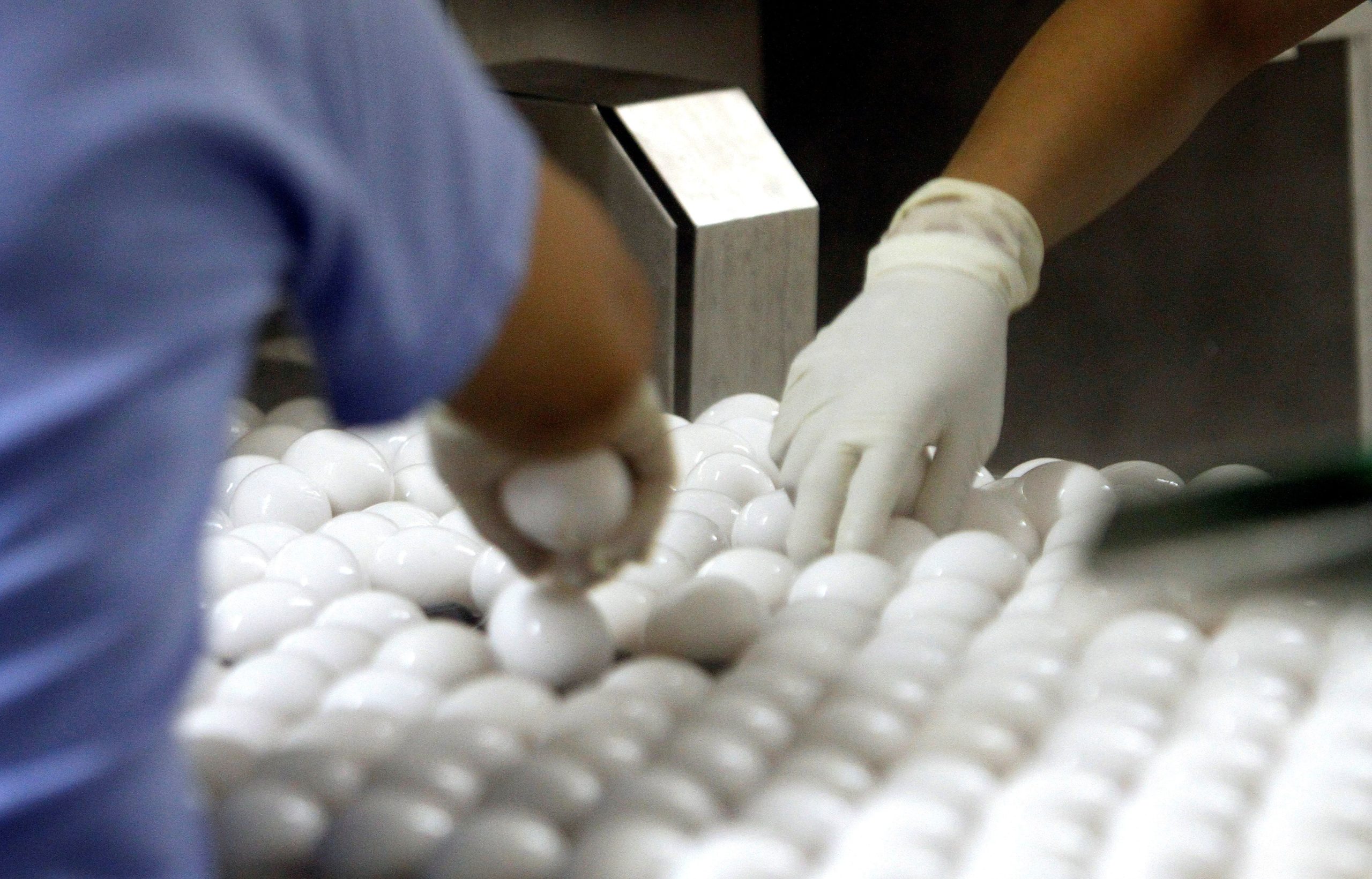
By Tom Polansek
CHICAGO (Reuters) – The Trump administration said on Wednesday it will stop requiring U.S. plants that produce egg products to have full-time government inspectors, in the first update of inspection methods in 50 years.
Under a new rule that takes effect immediately, the U.S. Department of Agriculture will allow companies like Cargill Inc and Sonstegard Foods to use different food-safety systems and procedures designed for their factories and equipment.
The change marks the Trump administration’s latest move to ease government regulations over the nation’s food system. Some inspectors and public-interest groups have warned food safety may suffer as a result.
The new rule affects 83 plants that USDA has been inspecting, according to the agency. USDA will also assume oversight from the Food and Drug Administration of additional facilities that produce egg substitutes.
Inspectors will visit plants once per shift, instead of being there whenever egg products are being processed.
The change, first proposed in 2018, makes inspections consistent with those for meat and poultry products, said Paul Kiecker, administrator of USDA’s Food Safety and Inspection Service. Inspectors will operate under a “patrol” system, in which they will cover multiple plants each day, he said.
“We feel very confident that, based on the once per shift that we have them there, we’ll still be able to verify that they’re producing safe product,” he said.
Environmental group Food & Water Watch said in 2018 the patrol system may make inspections less effective.
The new rule aims to make better use of inspectors and allow companies to develop new food-safety procedures, Kiecker said.
Companies must implement standard operating procedures for sanitation and food-safety management systems known as Hazard Analysis and Critical Control Points.
“We are giving them more of the responsibility to ensure that they are producing safe products,” Kiecker said.
The coronavirus pandemic disrupted egg product sales this spring, as closures of restaurants, schools and offices reduced demand.
(Reporting by Tom Polansek; Editing by Tom Brown)


